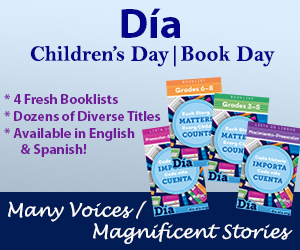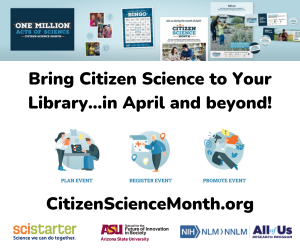And All That Jazz

The other week, a country and blues guitarist I jam with (I am a drummer) told me that for a long time he’s been wanting to get into Jazz, to expand his playing. Quite openly, he asked me, “So, who do I need to know?” It’s a great question, but a frustrating one for fans of what many critics contend is one of the only really “American” musical forms of what is the backbone of most forms of popular music in the US, of what one introductory text calls “the most democratic music ever devised,”[i] and yet which seems practically ignored by so many segments of American society. Most people randomly asked probably could not name more than two or three significant Jazz artists in history, let alone great living artists.
I gave my guitarist friend several names to start with, but his question got me thinking about when I first really came to Jazz myself in high school and why a good Jazz collection would be important in any library music collection. The New York Public Library’s music collection webpage makes an interesting claim when it asserts that “its curatorial mandate is an activist one, placing major emphasis on capturing the creative output of contemporary composers.”[ii]
Is it too much to say that Jazz music deserves to be put on such a pedestal that it should be actively defended by a similar kind of cultural mandate? I think some of the greatest musical minds would argue it is and has always been. In 1919, the great classical composer Ernst-Alexandre Ansermet, who conducted the premier of Stravinsky’s Rite of Spring (a performance that nearly caused a riot in a Paris theater[iii]), wrote rapturously about the first long-term residency of a Jazz ensemble in Europe: “It’s a mysterious new world which we were acquainted with only through its more or less distant repercussions, and which finally reaches us in its living reality. One can hardly imagine a more opportune manifestation, and it is to be hoped, for our common edification, that the British metropolis [London] will not alone reap its benefits.”[iv] Even today, Europeans flock to performances and many Jazz musicians have noted the irony that their work, though deeply-rooted in the American experience, is most fully appreciated overseas. Asian (especially Japanese), Australian, South American, and Mediterranean audiences are equally enthusiastic Jazz fans.
As librarians, we accept that part of our duty includes providing our patrons with access to the best information we can. In building a good collection of Jazz music, we can be sure that we are providing our communities with some of the very best “cultural” information America has ever produced. Additionally, Jazz has played a crucial role in our national road towards dealing with racial inclusion.
A good representative Jazz collection should contain, at the very least, recordings of the artists below. In compiling this list, I have tried to consider the most significant artists and groups, which is especially difficult when considering contemporary artists. This list is by no means definitive and nowhere near exhaustive; in fact, I have even left off some of my favorite to keep the list manageable. I’ve also divided the list up by important historical periods and movements to help give a rough timeline in the development of the art form. My thanks to Carlos Martinez, a valued friend and two-time Grammy Award winning percussionist, for some key questions and suggestions—Muito obrigado, mano!
New Orleans and Chicago Beginnings
- Joe “King” Oliver—trumpeter and one of the most significant early innovators of the form
- Luis Armstrong—key innovator on the trumpet and jazz vocals; his recordings with Luis Armstrong and the Hot Five are particularly significant; his 1928 recording of King Oliver’s composition, “West End Blues,” is an absolute classic
- Bessie Smith—singer and one of the great early mothers of jazz
- Jelly Roll Morton and Scott Joplin—fathers of jazz piano and gifted composers as well
- Sidney Bechet—clarinetist and saxophonist extraordinaire
New York Flowering and Swing
- Duke Ellington—pianist, composer, bandleader; Miles Davis is reported to have once said, “At least one day out of the year all musicians should just put their instruments down, and give thanks to Duke Ellington.”[v]
- Fletcher Henderson—another great pianist, composer, and bandleader
- Count Basie—pioneering pianist and a great innovator in the concept of ensemble playing
- Billie Holiday—her singing style still inspires women vocalists in all genres of popular music
- Benny Goodman—a fine clarinetist, bandleader, and advocate for African-American rights
- Gene Krupa—one of the first drummers to become a standout band leader
- Buddy Rich—many drummers still consider him the best that ever lived
- Ella Fitzgerald—nick-named “The First Lady of Song” with good reason; the album Ella and Duke at the Cote D’Azur is a stunning live album!
- Django Rheinhardt—excellent guitarist and composer and one of the early European jazz greats, especially his recordings with fellow-European Stephane Grappeli, a jazz violinist
- Lionel Hampton—very solid drummer, vibraphonist, bandleader, and humanitarian
Bebop Revolution (it would be hard to overemphasize the importance of this period in jazz history but the following list includes some of the core personalities)
- Charlie Parker—saxophonist, nick-named Bird, and his music still flies!
- Thelonius Monk—a pianist who was so innovative that contemporary composers are still fascinated by his work
- But Powell—a standout piano player, sometimes called “The Charlie Parker of the Piano”
- Dizzy Gillespie—one of the greatest trumpeters in the history of jazz
- Charlie Christian—a very influential jazz guitarist who died of tuberculosis at age 26
- Betty Carter—one of the greatest jazz vocalists of all time; fellow singer, Carmen McRae, once claimed “there’s really only one jazz singer – only one: Betty Carter”[vi]
Post-Bop Jazz
- Miles Davis—undoubtedly one of the greatest innovators in the history of jazz; recommended recordings include Birth of the Cool, Kind of Blue, Seven Steps to Heaven, and Bitches Brew
- John Coltrane—deeply spiritual saxophonist, composer, and bandleader; the concept of “soul” in music existed before him, but he redefined it; recommended recordings include Love Supreme and My Favorite Things
- Modern Jazz Quartet—this ensemble consciously challenged high-brow attitudes against jazz by openly integrating concepts from classical music; they will always be one of the “classiest” groups to record and perform; must-have recording would be Blues on Bach
- Sonny Rollins—one of Miles Davis’s favorite saxophonists and another true innovator; recommended recordings would include Freedom Suite, Saxophone Colossus, The Bridge (I also think Way Out West is both a touchstone recording and a great example of the playfulness and humor many of the finest jazz artists exhibit.)
- Dave Brubeck—one of jazz’s greatest pianists and composers; recommended recordings would be Time Out which includes the classic “Take Five,” and Jazz Goes to College
- Charles Mingus—one of the most intelligent bassists and composers of the jazz era; recommended recordings would include Mingus Ah Um, and The Black Saint and the Sinner Lady
- Art Blakey and the Jazz Messengers—Blakey was not only a masterful drummer, but also one of the greatest developers of young musicians as well; a recommended recording would be Moanin’
- Nat King Cole—singer, pianist, compser, bandleader; one of the most popular jazz artists of all time
Latin Jazz (as with bebop, there are so many great Latin Jazz artists, but those listed below form a good basis to start from)
- Antonio Carlos Jobim, Joao Gilberto, Astrud Gilberto, Stan Getz—these musicians brought the rich tradition of Brazilian rhythms and feels to America; a recommended recording would be Getz/Gilberto, which features the world classic “The Girl from Ipanema”
- Tito Puente—fiery percussionist and band leader who influenced the jazz world for many years
- Paquito di Rivera—Cuban clarinetist, composer, and pioneer of Afro-Cuban jazz
- Danilo Perez—Panamanian pianist and bandleader who has taken the jazz world by storm
- Buena Vista Social Club—this is a recording produced by Ry Cooder who traveled to Cuba and found a number of great pre-revolution jazz artists still alive and playing
Modern Approaches (starting in the sixties, jazz began to explore a wide variety of approaches, including the use of electric and electronic instruments)
- Ornette Coleman—pioneer of free jazz, which tries to create pure music with no forms or constraints; not everyone will appreciate this approach, but it is historically significant
- Weather Report—made up largely of Miles Davis alums, most significantly Joe Zawinul and Wayne Shorter, that created an exciting blend of jazz, rock, and African musical concepts; a recommended recording would be Heavy Weather which features the super hit “Birdland,” which, in turn, features the playing of Jaco Pastorius, who many believe was the greatest bassist of all time
- Passport—a masterful German band and one of Europe’s greatest contribution to the art form
- Manhattan Transfer—the longest-running and most successful jazz vocal group of all time
- Herbie Hancock—a pianist who cut his teeth with Miles Davis and has succeeded him as one of the great innovators and bandleaders; recommended recordings include Maiden Voyage, Empyrean Isles, Head Hunters, Herbie Hancock Trio, Future Schock, and a fabulous tribute to Miles Davis and John Coltrane entitled Directions in Music: Live at Massey Hall
- Yellowjackets—pioneers in the “smooth jazz” movement, they adopt musical ideas from all over the world and are respected for their high degree of musicianship
- Wynton Marsalis—extraordinary trumpeter, composer, and bandleader; he’s also the only person to ever win Grammy Awards in both the jazz and classical categories
- Branford Marsalis—(yes, they’re brothers) brilliant saxophone and also a multi-Grammy award winner
- Pat Metheny—great innovator on the guitar; his album with bassist Charlie Haden, Beyond the Missour Sky (1997 Grammy winner for a jazz instrumental recording) is one of my favorite CDs
- John Scofield—a guitarist who first gained exposure with Miles Davis and has gone on to be one of the most successful bandleaders since then; plays a with a very funky, “danceable” style
- Bela Fleck—jazz banjo player whose playing appeals to both experts and non-experts; recommended recording would be Outbound (Bela Fleck and the Flecktones; won the 2000 Grammy Award for contemporary jazz)
- Medeski, Martin, and Wood—experimental trio out of New York City with extraordinary appeal
- Soulive—funky trio from upstate New York known for their reinvention of the jazzy rhythm and blues sound; heavily influenced by Booker T and the MG’s
- Diana Krall—brilliant pianist, vocalist, and bandleader from the Vancouver, British Columbia area; recommended recording would be Love Scenes, The Look of Love (Grammy winner for jazz vocal in 2002), and All for You, an homage to the Nat King Cole trio
- Christian McBride—a truly gifted bassist, composer, and bandleader; “Little Sunflower” from the CD Number Two Express has to be one of my favorite recordings in any genre of music
[i] Paul O.W. Tanner et al. Jazz. ( Madison, WI: Brown & Benchmark Publishers, 1997), 3.
[ii] New York Public Library. http://www.nypl.org/locations/lpa/music-division. Accessed 24 January 2013.
[iii] See the New York Times review from 1913: http://www.nytimes.com/interactive/2012/09/17/arts/dance/rite-of-spring-1913.html
[iv] Ernst-Alexandre Ansernet. “Bechet and Jazz Visit Europe, 1919” in Reading Jazz: A Gathering of Autobiography, Reportage, and Criticism from 1919 to Now, ed. Robert Gottlieb (New York: Pantheon Books 1996), 742; the ensemble he refers to IS the Southern Syncopated Orchestra, which included both musicians and dancers and operated out of the British Isles from 1919 to 1922.
[v] http://jazz-quotes.com/artist/miles-davis/. Accessed 23 January 2013. If memory serves correctly, this quote originally came from a Downbeat Magazine interview.
[vi] http://en.wikipedia.org/wiki/Betty_Carter. Accessed 28 January 2012.
Tags: jazz music







